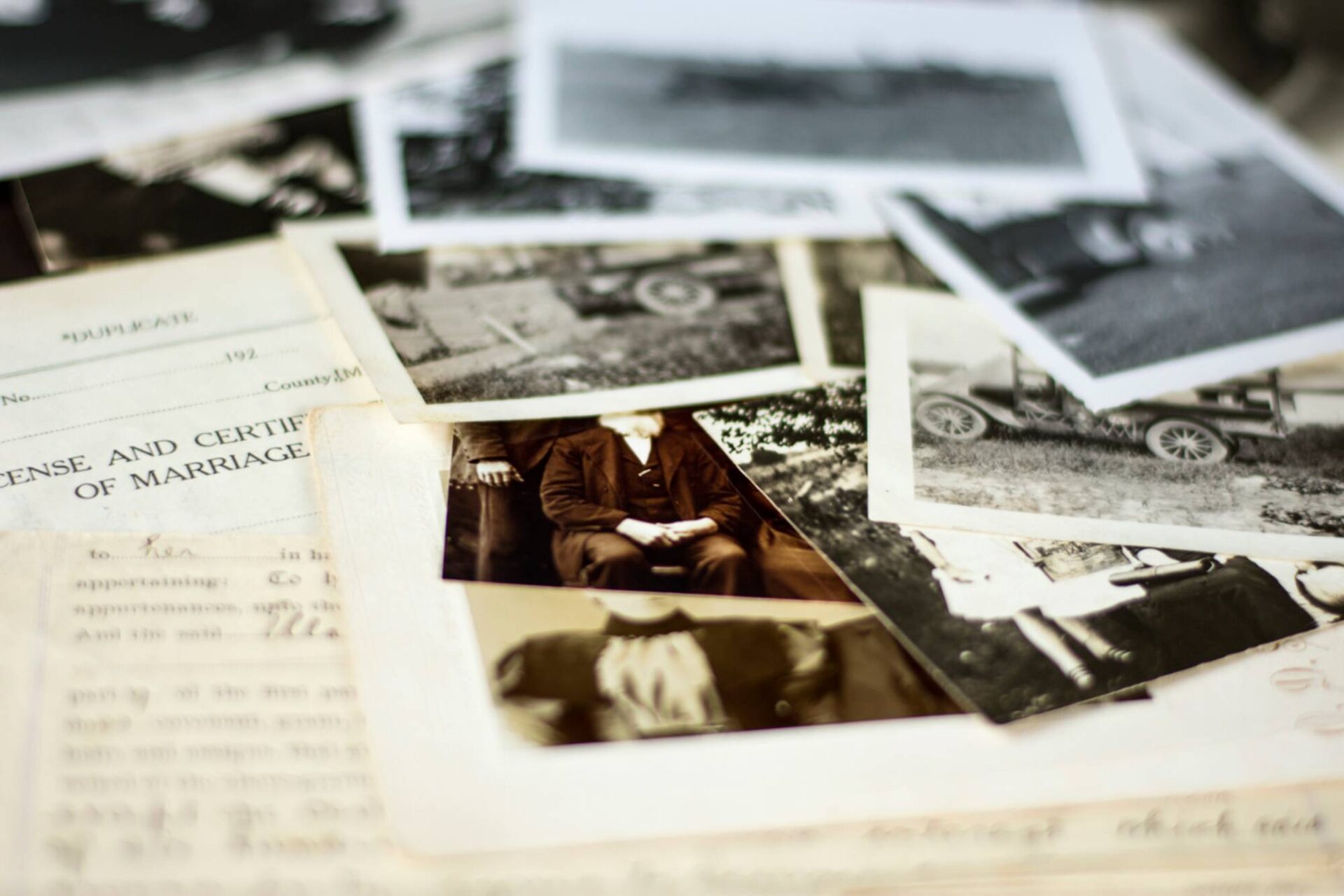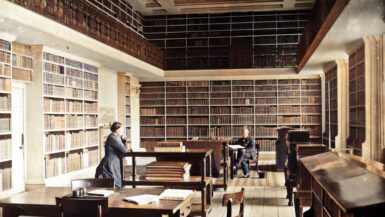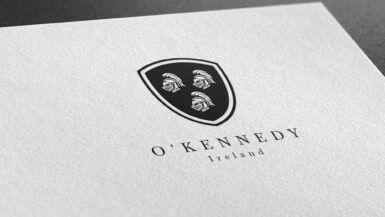Irish surnames have a rich and diverse history, steeped in cultural significance and linguistic heritage. Over the years, these surnames have evolved, giving us a unique glimpse into the lives of our ancestors. This comprehensive article delves into the world of unique and unusual Irish surnames, offering an in-depth look at their origins, meanings, and the stories behind them. As we journey through the colorful tapestry of Irish genealogy, we will uncover the influences of Gaelic, Norse, and English languages, the impact of Anglicization, and celebrate the legacy of these rare surnames.
Origins and History of Irish Surnames
Irish surnames have their roots in the early medieval period, when the Gaelic-speaking people of Ireland began adopting hereditary surnames. These surnames served as a means of identification, indicating family relationships and sometimes occupation or social status. Over time, these surnames evolved due to linguistic, social, and political influences.
The Influence of Gaelic and Norse Languages
Gaelic and Norse languages have both had a significant impact on the development of Irish surnames. The majority of Irish surnames are of Gaelic origin, stemming from the Old Irish language. Norse surnames, on the other hand, came to Ireland through the Vikings, who began invading the island in the 8th century.
Gaelic surnames typically begin with “O'” (Ó) or “Mac” (Mc or Mhic), indicating descent from a particular ancestor. Examples of Gaelic-origin surnames include Ó Súilleabháin (Sullivan) and MacCarthy (McCarthy).
Norse surnames often have a distinct Scandinavian flavor and are typically not prefixed with “O'” or “Mac”. Examples of Norse-origin surnames include Doyle (Ó Dubhghaill) and McBirney (Mac Giolla Bhríde).
Patronymic and Occupational Irish Surnames
There are two primary types of Irish surnames: patronymic and occupational. Patronymic surnames are based on the name of an individual’s father or a male ancestor. As mentioned earlier, Gaelic surnames often include “O'” or “Mac”, while Norse surnames do not. Examples of patronymic surnames are O’Brien (Ó Briain) and MacMahon (Mac Mathúna).
Occupational surnames are derived from an individual’s profession or trade. These surnames can provide insight into the daily lives and occupations of our ancestors. Examples of occupational surnames include Ó Ceallaigh (Kelly, from “ceallach,” meaning “strife”) and Ó Béara (Barry, from “béarach,” meaning “spear”).
Top 10 Unique and Unusual Irish Surnames
- Quirke (Ó Cuirc): This rare surname has its origins in the Gaelic word “cuirc,” meaning “heart” or “valorous.” It is primarily found in the southern counties of Ireland, particularly Cork and Tipperary.
- Furey (Ó Fuaráin): Derived from the Gaelic word “fuar,” meaning “cold” or “frosty,” this unusual surname is most prevalent in the western province of Connacht, particularly Galway and Roscommon.
- Rafferty (Ó Raifeartaigh): This distinctive surname originates from the Gaelic words “rath” and “bheartach,” meaning “prosperity” and “wielder” respectively. It is mainly associated with the counties of Armagh and Down in Northern Ireland.
- Clancy (Mac Fhlannchaidh): With roots in the Gaelic word “flannchadh,” meaning “red warrior,” this uncommon surname is chiefly found in the western counties of Clare and Galway.
- Goggin (Ó Gogáin): This unique surname has its origins in the Gaelic word “gog,” meaning “a small, misshapen or twisted object.” It is predominantly associated with County Cork in southern Ireland.
- Muldoon (Ó Maoldúin): Stemming from the Gaelic words “maol” and “dún,” meaning “bald” and “fort” respectively, this rare surname is primarily linked to the counties of Tyrone and Fermanagh in Northern Ireland.
- Hennigan (Ó hEanacháin): Derived from the Gaelic word “eanach,” meaning “marsh” or “bog,” this unusual surname is most prevalent in the western counties of Mayo and Sligo.
- Lally (Ó Maolalaidh): With roots in the Gaelic words “maol” and “laidh,” meaning “bald” and “hero” respectively, this distinctive surname is chiefly found in the western province of Connacht, particularly Galway and Roscommon.
- Shanahan (Ó Seanacháin): Originating from the Gaelic word “seanach,” meaning “old” or “ancient,” this uncommon surname is primarily associated with the counties of Tipperary and Limerick in southern Ireland.
- Traynor (Mac Thréinfhir): This rare surname comes from the Gaelic words “trean” and “fhear,” meaning “strong” and “man” respectively. It is mainly linked to the counties of Monaghan and Louth in the northeastern part of Ireland.
Uncommon Irish Surnames with Powerful Meanings
- Brannigan (Ó Branagáin): Derived from the Gaelic word “bran,” meaning “raven,” this unique surname is associated with the counties of Armagh and Monaghan in Northern Ireland.
- Kavanagh (Caomhánach): With roots in the Gaelic word “caomh,” meaning “gentle” or “kind,” this uncommon surname is chiefly found in the southeastern counties of Wexford, Wicklow, and Carlow.
- Lenehan (Ó Luingeacháin): Originating from the Gaelic words “long” and “each,” meaning “ship” and “horse” respectively, this rare surname is primarily linked to the counties of Roscommon and Sligo in the western part of Ireland.
- Nangle (de Nógla): This unusual surname has its origins in the Norman name “de Angulo” and is predominantly associated with the counties of Westmeath and Meath in the eastern part of Ireland.
- O’Flaherty (Ó Flaithbheartaigh): With roots in the Gaelic words “flaith” and “beartach,” meaning “prince” and “doer” respectively, this distinctive surname is chiefly found in the western province of Connacht, particularly Galway and Mayo.
The Impact of Anglicization on Irish Surnames
The process of Anglicization significantly impacted Irish surnames, particularly during the 17th and 18th centuries. As English became the dominant language in Ireland, many surnames were translated or phonetically adapted to fit English spelling conventions. This led to the loss of some original Gaelic meanings and the emergence of multiple spelling variations for the same surname. Examples of Anglicized surnames include O’Sullivan (Ó Súilleabháin), Doherty (Ó Dochartaigh), and Murphy (Ó Murchadha).
Preservation and Revival of Unusual Irish Surnames
In recent years, there has been a growing interest in preserving and reviving unique and unusual Irish surnames. Many people of Irish descent are embracing their cultural heritage by researching their family history, learning the Irish language, and reclaiming their original Gaelic surnames. This resurgence of interest in Irish surnames has led to a greater understanding of the rich linguistic and cultural legacy they represent.
Tracing Your Irish Ancestry Through Unusual Surnames
Tracing your Irish ancestry through unusual surnames can be a fascinating and rewarding journey. Genealogical research, such as examining census records, birth and death certificates, and church registers, can help uncover the stories of your ancestors and shed light on their lives. Online resources, such as the Irish Genealogy website and the National Archives of Ireland, can also provide valuable information for those researching their Irish roots.
When researching unusual Irish surnames, it is essential to be aware of possible spelling variations due to Anglicization and to explore both the Gaelic and Anglicized versions of the name. Consulting with Irish surname experts or joining genealogy forums and groups can also offer valuable insights and guidance.
The Legacy of Unique Irish Surnames
The legacy of unique and unusual Irish surnames is a testament to the rich tapestry of Ireland’s cultural, linguistic, and historical heritage. By understanding and embracing these rare surnames, we celebrate the stories of our ancestors and the enduring spirit of the Irish people. In doing so, we ensure that the legacy of these surnames continues to thrive and enrich the lives of future generations.






l am a descendant of the name mccoughtry and I’m fascinated by my Irish ancestry, William mccoughtry came to Australia in the 1840’s and married an Irish girl grace Irwin, the mccoughtry’sin Australia are a one of name.
why isn’t the surname Faherty not in the unusual surnames of Ireland
Thank you for the opportunity to further trace our Irish lineage and history.
My family name is Breen they were from Ballyconry in Kerry. Any details about this name would be appreciated.
Thank you
I’ve spent over 35 yrs trying to decipher my 3G grandmother’s supposed maiden name (listed by her daughter on her death certificate in NY, in 1916). On the document my 3Ggm, Elizabeth “lizzie” Lynch’s mother’s name is listed as Mary Morgan, and her father, also very clearly scribed as Peter “Libbin”
Needless to say, spending decades trying to find a Libbin, Gibbon, Fitzgibbin, Lappin, and 1000 other similar & not so similar surname possibilities has led to endless frustrations.
Per 1865 NY Census & 1900 Federal Census, Elizabeth was born about 1825. She only had 3 children with her husband –surname Lynch, given name unknown. By 1865 she was already widowed. Only 2 of her children survived by 1900, and only 2 were in the widow’s home in 1865 in NY —Edward & daughter Elizabeth “Lizzy”. Her 3rd child’s name, gender & birth order are unknown.
by these 2 records I learned she married prior to her arrival in the US (presumed to be in NY, tho I’ve checked other states too) in abt 1850, arriving in the US in 1851.
Then, in 1930, her daughter provided to the census that both her parents were from Northern Ireland, rather than “Irish Free State.”
Libbin.
Can you help?